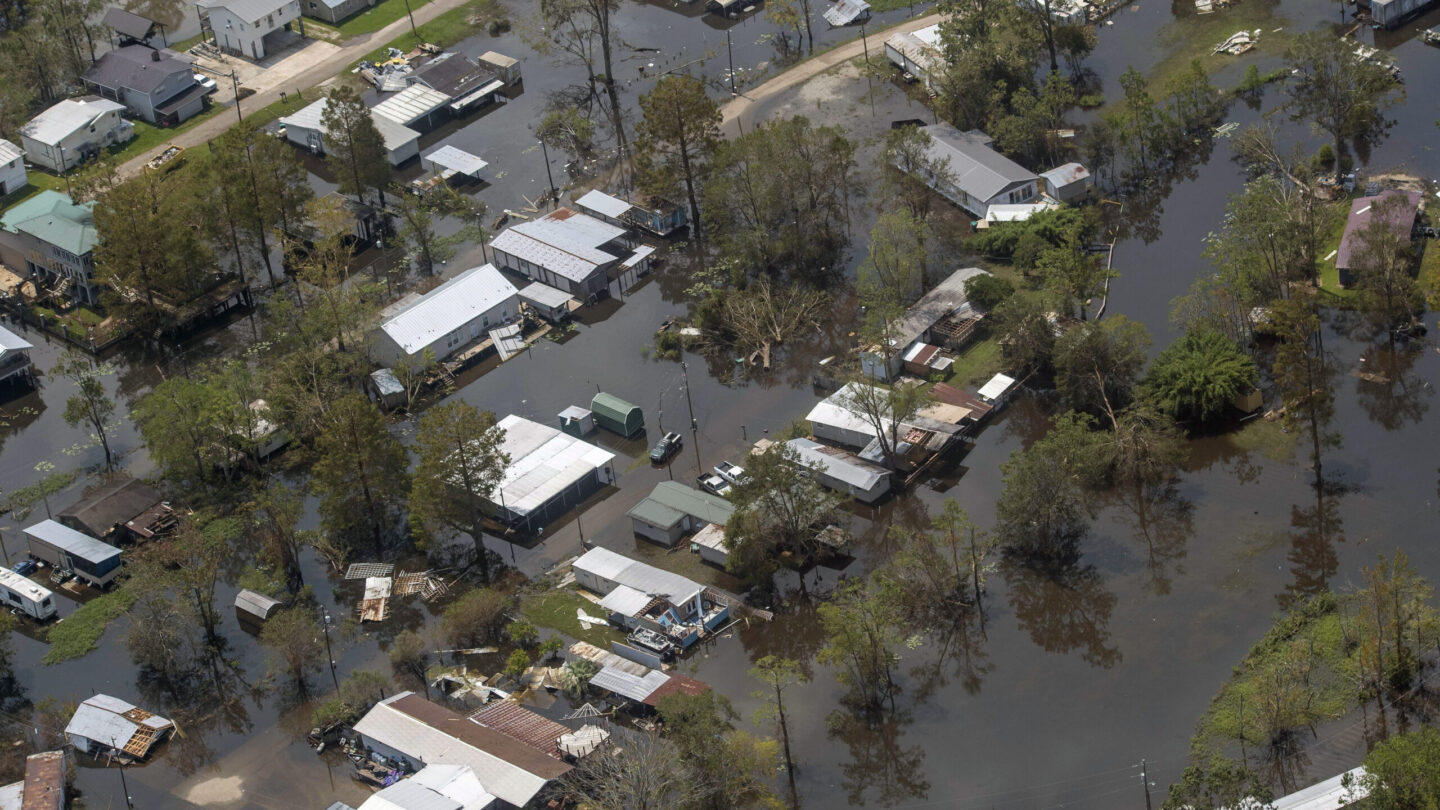Flood risk in the United States will increase by about 25% in the next three decades, and Black communities in the South will face disproportionate harm, according to a sweeping new analysis published Monday.
Climate change is already driving more severe flooding across much of the country, especially along the East Coast and Gulf Coast where residents are experiencing the triple threat of rising seas, stronger hurricanes and heavier rain. By 2050, annual losses from floods will be approximately $40 billion, according to the new study by scientists in the U.S. and United Kingdom.
“This isn’t a pie in the sky projection,” says Oliver Wing, the chief research officer at the U.K.-based flood modeling company Fathom and an author of the study. “These risks are very likely to be experienced by people that are alive right now.”
The new study, published in the journal Nature Climate Change, attempts to estimate not just the scale of flood risk in the U.S., but who will bear the burden of flooding.
The authors found that, right now, floods disproportionately affect communities in Appalachia and the Northeast, where the proportion of Black residents is generally low. But in the coming decades, the areas with highest flood risk will shift south. People living in Texas, along the Gulf Coast and the Southeast will suffer more damaging floods, and communities where Black people live will see a disproportionate rise in flood risk.
Overall, the authors estimate a 40% increase in flood risk in places where at least one-fifth of the population is Black
Floods are already among the most expensive and deadly disasters worldwide. In 2021, flash floods in Europe and flooding from Hurricane Ida in the U.S. both caused tens of billions of dollars of damage and killed hundreds of people.
The study underscores the need to adapt to a hotter Earth. Cutting greenhouse gas emissions today will not reduce flood risk between now and 2050, but reducing emissions is the only way to avoid even more catastrophic flooding later this century.
Reza Marsooli, an engineer who studies flood risk at Stevens Institute of Technology in New Jersey, says there needs to be “more public awareness of climate change and its connection to flooding,” especially in communities that are projected to see the biggest increase in flood risk in the coming decades.
The authors of the new study stress that it is not too late to protect people from climate-driven flooding. They find that where people live is by far the most important factor for overall flood risk. If homes and businesses were not located in flood-prone areas, and if buildings that must be located in floodplains were built to better withstand the water, overall flood risk would plummet despite climate change.
“In many ways, the solutions here are conceptually simple,” says Wing. “Don’t build any more stuff in the way of floods.”
Copyright 2022 NPR. To see more, visit https://www.npr.org.9(MDAxODM0MDY4MDEyMTY4NDA3MzI3YjkzMw004))

9(MDAxODM0MDY4MDEyMTY4NDA3MzI3YjkzMw004))








